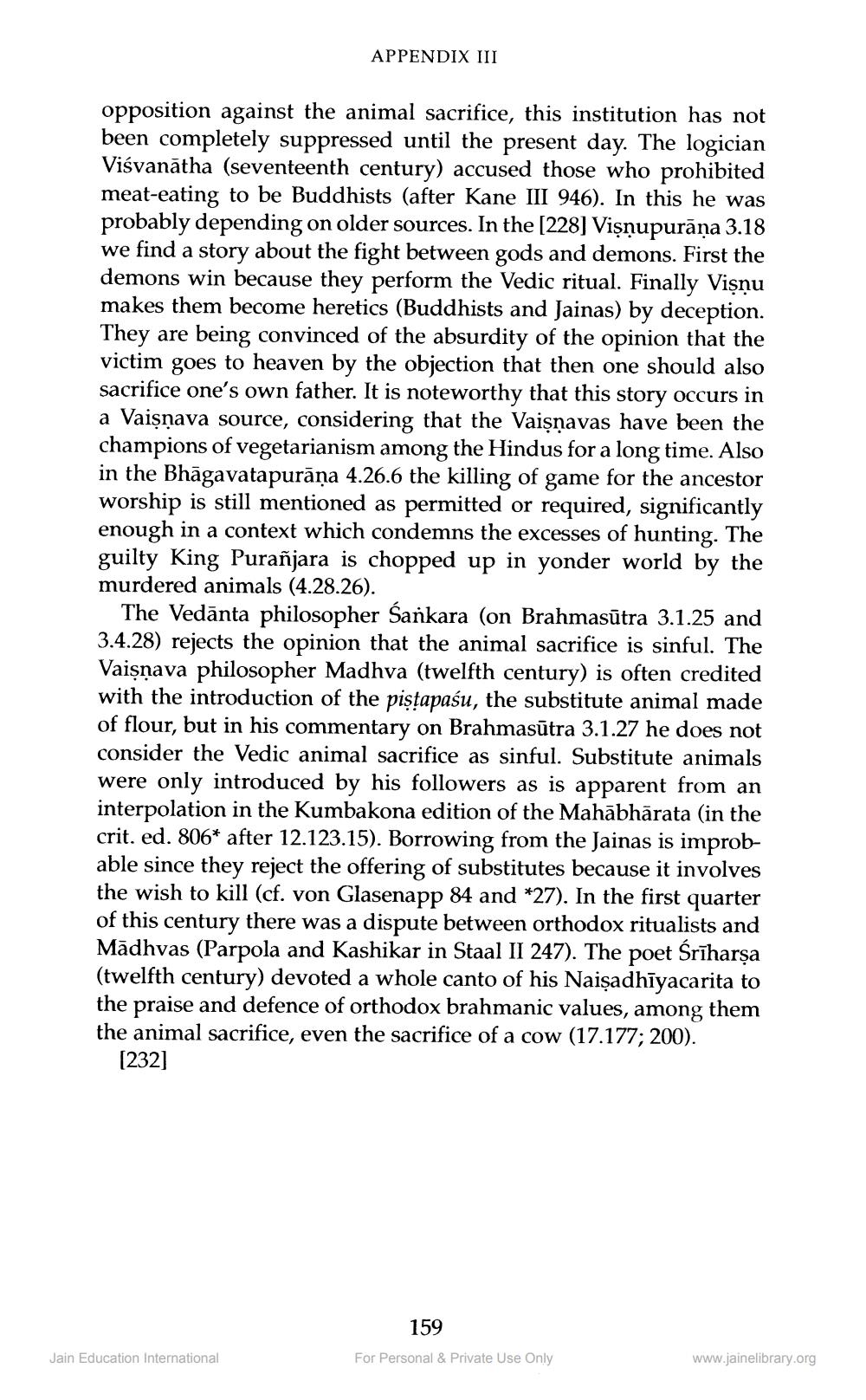________________
APPENDIX III
opposition against the animal sacrifice, this institution has not been completely suppressed until the present day. The logician Viśvanātha (seventeenth century) accused those who prohibited meat-eating to be Buddhists (after Kane III 946). In this he was probably depending on older sources. In the [228] Vişnupurāņa 3.18 we find a story about the fight between gods and demons. First the demons win because they perform the Vedic ritual. Finally Vişnu makes them become heretics (Buddhists and Jainas) by deception. They are being convinced of the absurdity of the opinion that the victim goes to heaven by the objection that then one should also sacrifice one's own father. It is noteworthy that this story occurs in a Vaisnava source, considering that the Vaişņavas have been the champions of vegetarianism among the Hindus for a long time. Also in the Bhāgavatapurāņa 4.26.6 the killing of game for the ancestor worship is still mentioned as permitted or required, significantly enough in a context which condemns the excesses of hunting. The guilty King Purañjara is chopped up in yonder world by the murdered animals (4.28.26).
The Vedānta philosopher Sankara (on Brahmasūtra 3.1.25 and 3.4.28) rejects the opinion that the animal sacrifice is sinful. The Vaisnava philosopher Madhva (twelfth century) is often credited with the introduction of the pistapaśu, the substitute animal made of flour, but in his commentary on Brahmasūtra 3.1.27 he does not consider the Vedic animal sacrifice as sinful. Substitute animals were only introduced by his followers as is apparent from an interpolation in the Kumbakona edition of the Mahābhārata (i crit. ed. 806* after 12.123.15). Borrowing from the Jainas is improbable since they reject the offering of substitutes because it involves the wish to kill (cf. von Glasenapp 84 and *27). In the first quarter of this century there was a dispute between orthodox ritualists and Mādhvas (Parpola and Kashikar in Staal II 247). The poet Śrīharșa (twelfth century) devoted a whole canto of his Naişadhīyacarita to the praise and defence of orthodox brahmanic values, among them the animal sacrifice, even the sacrifice of a cow (17.177; 200).
[232]
159 For Personal & Private Use Only
Jain Education International
www.jainelibrary.org




